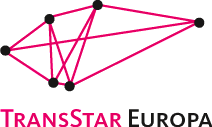The four-day TransStar-workshop in Ústí nad Labem in September started with a presentation by the deputy director of the Collegium Bohemicum. Milan Rudik gave us a short impression about the work of the organization, which was founded in 2006 and engages in activities concerning the history and culture of the German speaking inhabitants of the Bohemian areas. Currently the Collegium Bohemicum is working on an exhibition about the German culture heritage in the Bohemian areas and aims at presenting this part of European history soon to a broad public.
by Magda Wlostowska


